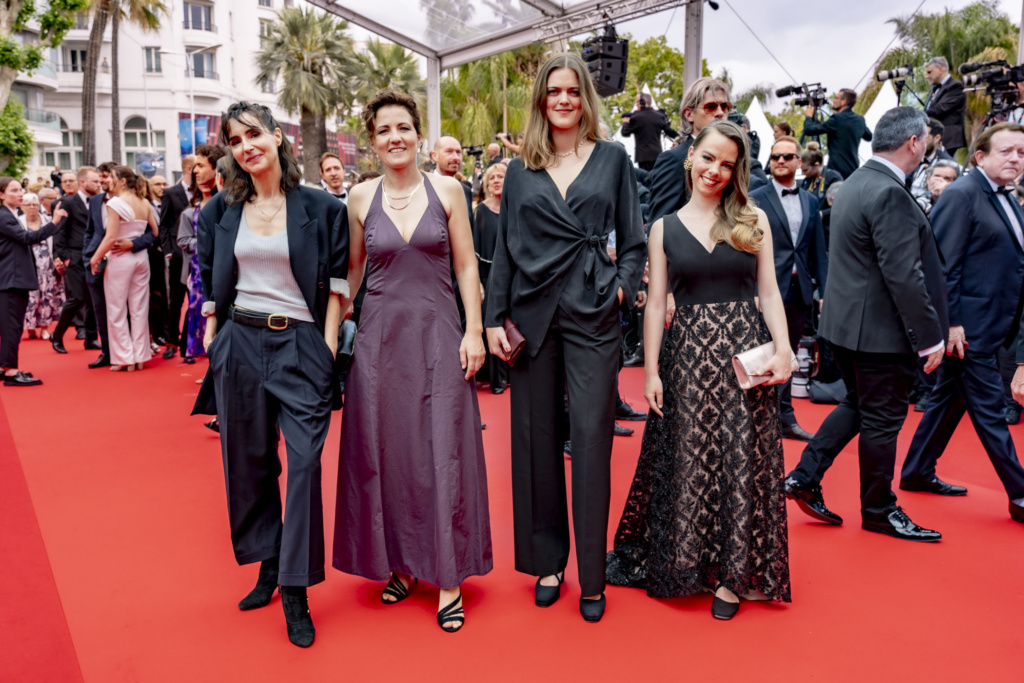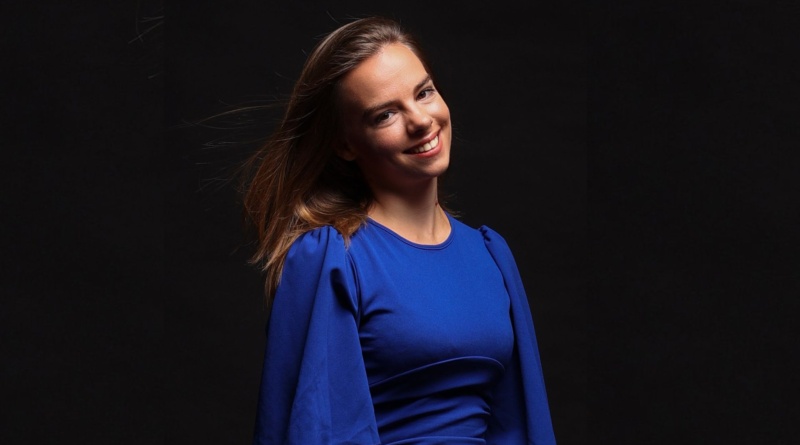Composer Interview: Anne de Boysson
After a childhood shaped by travels, her parents being itinerants, Anne de Boysson quickly moved towards composition and won the 1st prize at the International Competition "Music and Earth" of Sofa in composition in 2013. Since then, she received two state commissions: a quintet for cellos performed at the Great War Memorial in Peronne, in the presence of more than 80 UNESCO ambassadors in 2014, and a piece for 35 musicians created at the annual Gala Concert of the Land Forces in 2018. Her compositions have already been perform by many well-known musicians: Christoph Bielefeld (Germany), Anna Sutyagina (Germany), Nuala MacKenna (Ireland), Marie Ythier (France), Jee-Hye Bae (Korea)...
With an eclectic career, she composes the music of about fifty films. In 2022, she signed the original score of the feature film "The Taste of Apples is Red" by Ehab Tarabieh and won the Special Mention for the Original Score at the International Festival of Marseille (France). In 2024, she composed the music for the 4th episode of the ‘Red Carpet’ series, directed by Nina Meurisse and screened at the 2024 Cannes Film Festival.
In October 2023, she won the Progressive Musicians competition, and her piece "Metamorphose" was performed at Carnegie Hall on 1 April 2024 by the Austrian flutist Elisabeth Möst and the young prodigy harpist Alisa Sadikova.
Can you share with us the moment or experience that first inspired you to start composing music?
As far back as I can remember, I have always composed. I mean, I started composing when I started playing the piano when I was 6. It was my way of expressing myself instead of words, with direct access to my heart. For a long time, the piano was my secret garden as well as my best friend, to whom I confided many secrets, my joys, and my sorrows. All my early compositions were written for this instrument.
Your compositions often reflect a deep emotional, intellectual, and historical complexity. What are your main sources of inspiration, and how do you incorporate these influences into your music?
I had the chance to travel a lot and to discover many different cultures when I was young because I accompanied my parents traveling constantly for work. I have always read a lot and I am fond of wandering in the forest or by the sea. I was fortunate enough to grow up in “Ile de Ré”, an awesome island on the west coast of France. If I talk a lot about those types of things, it is because I truly think that sometimes doing things other than music can harbor inner creativity.
One of the main features of my musical world is to be fully immersed in the experience of the atmosphere and ambiance created by the music. And the instruments with their specific sounds fully participate to create an atmosphere as well as the combination of different instruments also changes the color of the ambiance.
I am very sensitive to the feelings and emotions that music provokes. So when I start composing, I like to get myself into the mood intended. My main sources of inspiration are nature, forest and sea, and cosmos. Because it touches on infinity. Both of them.
Being a multi-instrumentalist must offer a unique perspective when it comes to composing. Can you tell us more about how your experience as a performer influences your approach to composition?
The fact that I play the piano, and the flute, and that I sing allows me to get to know these instruments from the inside, and each of these instruments enriches my approach to composition. The piano gives me a more orchestral and harmonic vision while singing and playing the flute make me sensitive to the notion of breath and breathing.
For me, it's extremely important when I compose for an instrument that my piece is well written for it. So I have to adapt to the specificities and constraints of the instrument. That's why I always do a lot of research before I start a piece so that I can get to grips with the world of the instrument or instruments I'm going to compose for. And this also involves a lot of dialogue with the performers.
For example, I've worked a lot with my sister, Madeleine de Boysson, a violinist and violist by profession, who has given me a deeper understanding of the world of strings.
Your recent composition debut at Carnegie Hall is a monumental achievement and began with a competition. Could you elaborate on this competition, and the piece you submitted, and could you take us through the creative process behind the piece that was performed?
Metamorphose has a great story. This piece was commissioned by the flutist who performs at Carnegie Hall, the wonderful Austrian flutist Elisabeth Möst. She ordered it two years ago, and it had its world premiere in the fantastic Herrnau Church in Salzburg. This church is famous for its immense, colorful, and magnificent stained-glass windows, which were my main source of inspiration.
Composing this piece was a full joy to me and a very emotional experience. So when Elisabeth sent me a few months ago the flyer for the Progressive Musicians Competition, it was obvious that I had to select Metamorphose.
This piece is an invitation to a metamorphosis, to an inner change and to join the Joy in an inner dance. With Metamorphose, I decided to explore different kinds of sounds and ways of playing with the flûte as well as with the harp. These two instruments can sound gentle, and sweet, but it was interesting to me to also explore making them sound more tribal in the second movement for instance.
What advice would you give to emerging composers, especially in terms of developing a unique compositional voice and navigating the contemporary music landscape?
I would say, it's good to have more than one string to our bow and to share your music. For me, music is a fantastic and emotional experience to share with other human beings. That is why I love giving recitals of my compositions so much. I love to bring the public into my musical world, playing piano, talking about my inspirations, and sharing a moment of joy at the end of the concert.
I am also a composer for films. I'm currently working on an animated series and a feature film. I love working with images because each time you enter an unknown universe, a world that you have to make your own. It's very rewarding. I'm lucky enough to have worked on several foreign films, in particular, which have enabled me to familiarise myself with the music of the country in question. I'm thinking, for example, of a film I worked on recently in New Caledonia. I had to immerse myself in the Kanak music so that I could then put it into perspective, bring my personal touch, and use my work in the service of the film.
When I started composing, I was a bit shy about sharing my music. It is no longer the case today. Because I have seen my music bring joy to others. I would also recommend to work hard, to be patient, to be always curious!
 Anne (right) on the red carpet at the 2024 Cannes Festival
Anne (right) on the red carpet at the 2024 Cannes Festival
Looking to the future, how do you envision your compositional journey evolving? Are there any particular themes, collaborations, or projects that you are eager to explore in your upcoming works?
I don't have any particular plans for the future other than to keep evolving and discovering new and exciting projects! Each project brings surprises and discoveries, and that's exactly what I like. In the future, I think I'd very much like to write a cycle of voice/piano melodies. Probably around the poetry of my sister Madeleine de Boysson, who is releasing her third book of poems next month.
